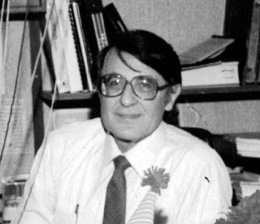On March 16, 1981, Joseph Recchi becomes superintendent of Seattle City Light when the City Council confirms his nomination by Mayor Charles Royer. Recchi is a 31-year City Light Employee and deputy superintendent. He serves as superintendent for three years until Mayor Royer dismisses him in March 1984.
Recchi started with City Light in 1949 as an industrial sales engineer right after he graduated from Seattle University. He rose through the organization and in 1975 became assistant superintendent. Charles Royer took over as Mayor in 1978 with policies of affirmative action in hiring and energy conservation. His first nominee for City Light Superintendent lasted 15 months. Recchi was chosen after a five month search process. Recchi's appointment was applauded by City Light employees because of his history with the utility.
Difficulties
A cold snap and record loads hit Seattle in January 1983, and calls flooded City Hall. Seattle needed more power.
The raising of Ross Dam (1940) had been a thorny issue since 1970. Building the dam to its full design height would have produced additional cheap power for the city, but the larger reservoir would have flooded more of British Columbia. The Royer Administration and City Light worked out a treaty with Canada to not build the dam in exchange for guaranteed power from British Columbia sources.
Without a higher Ross Dam, City Light began searching for more power sources. A dam on the Tolt River would be tapped for its hydro power. The utility contracted with smaller hydro plants in eastern Washington their electricity.
The department continued to be hit with sex and race discrimination complaints particularly in the trades. On November 7, 1983, employees staged a wildcat work stoppage to protest discipline against a crew chief accused of sex discrimination. These issues drew more attention from the mayor and the City Council.
Dismissal
Mayor Royer dismissed Recchi on March 30, 1984, because, "Progress has not been sufficient in a number of areas, such as new conservation programs, the composition of the work force, overall productivity measures, planning commitments to the City Council, and good common-sense public relations" (Seattle P-I). The central issue was a public conflict between Royer and Recchi over the appointment of a director of customer services at City Light. "The unpolitical Recchi was taken by surprise" (The Seattle Times).
Recchi's technical expertise did not translate into the sort of manager Royer needed.

